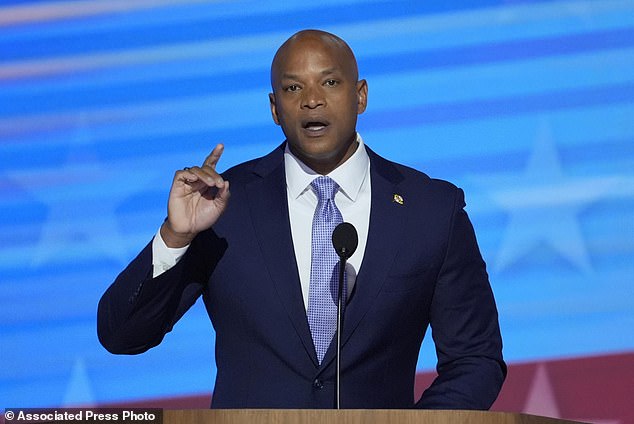- Moore called it an “honest mistake” after being recommended for the medal.
- Now he says he should have gone back to correct his scholarship application.
Maryland Gov. Wes Moore said Thursday he made “an honest mistake” in failing to correct a White House fellowship application from 18 years ago when he wrote that he had received a Bronze Star for his military service in Afghanistan even though he never received it, after The New York Times obtained a copy of the application and published a report on it.
The newspaper, which obtained the document as part of a Freedom of Information Act request, reported that Moore made the claim in the request in 2006, when he was 27.
In a statement, the governor wrote that his deputy brigade commander, who was serving overseas in the Army, had encouraged him to complete the application for the scholarship. At the time, Moore said the deputy brigade commander had recommended him for the Bronze Star and told him to include the award in his application “after confirming with two other senior officers who had also approved the award.”
Toward the end of his deployment, however, Moore said he was disappointed to learn he had not received the Bronze Star. When he returned home, Moore said he was “focused on helping my fellow veterans, a mission I continue to push forward as governor.”
“Still, I sincerely wish I had corrected the grade on my application,” Moore, a Democrat, said in a statement Thursday. “It was an honest mistake and I regret not having corrected it.”
The Bronze Star is awarded to service members for meritorious service in combat zones.
Maryland Gov. Wes Moore, a rising star in the Democratic Party, says he made an “honest mistake” when he wrote in an application to the White House that he had received a Bronze Star, when in fact he had only been recommended for the medal.
The governor noted in his statement Thursday that he was listed as one of the top 1 percent of officers in Operation Enduring Freedom in his officer evaluation report.
“My deputy brigade commander felt comfortable directing me to include the award on my application for the Fellowship because he received confirmation from the approving authority that the Bronze Star was signed and approved by his senior leadership,” Moore wrote.
The governor also wrote that in the military “there is an understanding that if a superior officer tells you an action is approved, you can rely on that as fact. That’s why it was part of the request, plain and simple.”
The revelation comes days after Moore spoke at the Democratic National Convention in Chicago.

“Still, I sincerely wish I had gone back and corrected the grade on my application,” Moore said after a FOIA request revealed that she had written on a White House fellowship application that she received the medal.
The award had been mentioned during media interviews when Moore was running for governor in 2022, but Moore never said in those interviews that he had not received the recognition. In an interview with the New York Times, the governor said for the first time that he regretted not correcting interviewers who had described him as a recipient of the award.
The newspaper also spoke to the official who Moore said had recommended he include the award in his application this week in an interview arranged by Moore’s staff. The official, Michael Fenzel, who is now a lieutenant general and serves as the U.S. security coordinator for Israel and the Palestinian Authority, told The Times that Moore had initially objected to the idea of mentioning the Bronze Star.
Fenzel said he told Moore that he and others had approved the medal and that it was appropriate to include it in her application, the newspaper reported, and that it would be processed when her fellowship began.
(tags to translate)dailymail


